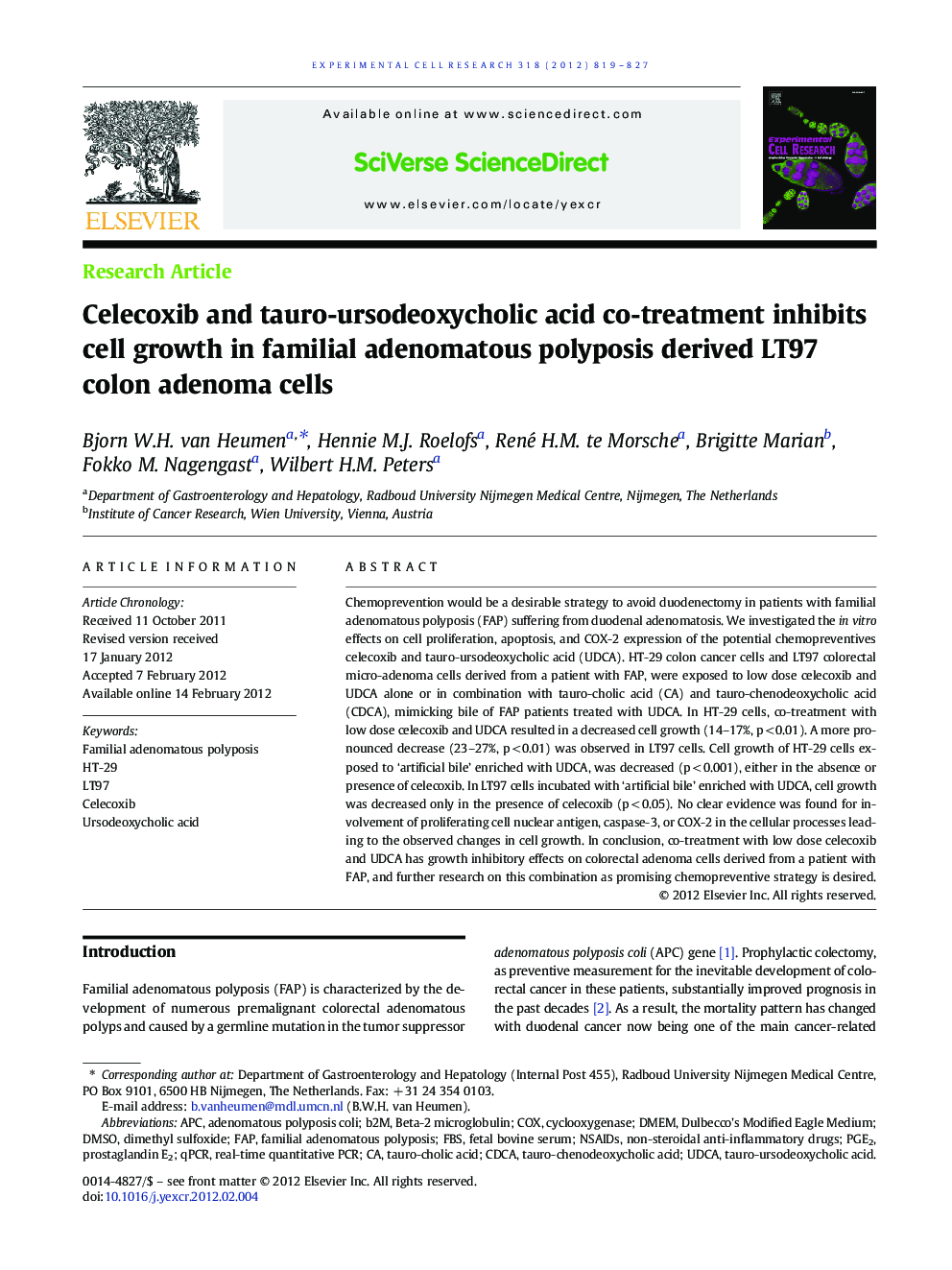| Article ID | Journal | Published Year | Pages | File Type |
|---|---|---|---|---|
| 2130688 | Experimental Cell Research | 2012 | 9 Pages |
Chemoprevention would be a desirable strategy to avoid duodenectomy in patients with familial adenomatous polyposis (FAP) suffering from duodenal adenomatosis. We investigated the in vitro effects on cell proliferation, apoptosis, and COX-2 expression of the potential chemopreventives celecoxib and tauro-ursodeoxycholic acid (UDCA). HT-29 colon cancer cells and LT97 colorectal micro-adenoma cells derived from a patient with FAP, were exposed to low dose celecoxib and UDCA alone or in combination with tauro-cholic acid (CA) and tauro-chenodeoxycholic acid (CDCA), mimicking bile of FAP patients treated with UDCA. In HT-29 cells, co-treatment with low dose celecoxib and UDCA resulted in a decreased cell growth (14–17%, p < 0.01). A more pronounced decrease (23–27%, p < 0.01) was observed in LT97 cells. Cell growth of HT-29 cells exposed to ‘artificial bile’ enriched with UDCA, was decreased (p < 0.001), either in the absence or presence of celecoxib. In LT97 cells incubated with ‘artificial bile’ enriched with UDCA, cell growth was decreased only in the presence of celecoxib (p < 0.05). No clear evidence was found for involvement of proliferating cell nuclear antigen, caspase-3, or COX-2 in the cellular processes leading to the observed changes in cell growth. In conclusion, co-treatment with low dose celecoxib and UDCA has growth inhibitory effects on colorectal adenoma cells derived from a patient with FAP, and further research on this combination as promising chemopreventive strategy is desired.
► Celecoxib and UDCA acid co-treatment decreases cell growth in colon tumor cells. ► UDCA enriched ‘artificial bile’ decreases LT-97 cell growth only in presence of celecoxib. ► PCNA, caspase-3, nor COX-2 seem to be involved in the observed changes in cell growth.
